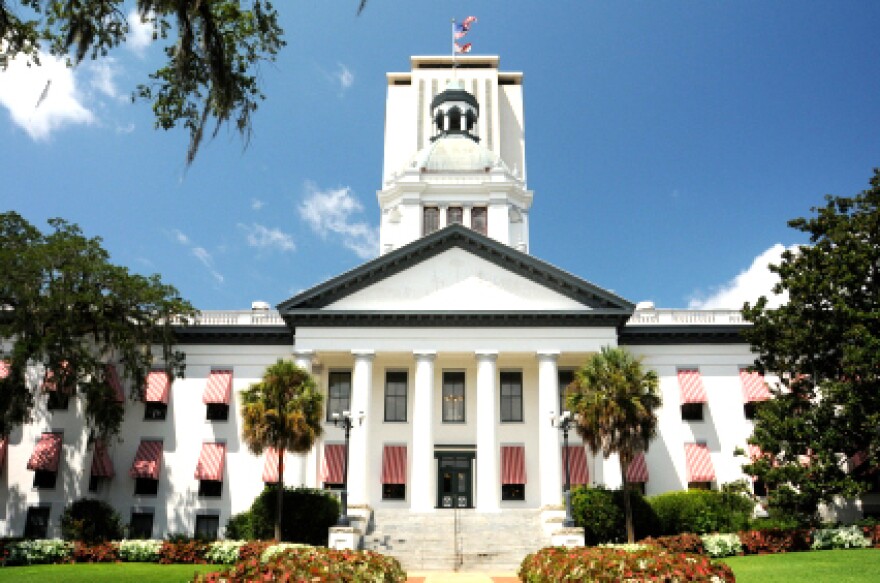The Florida Senate has voted on a plan that will bring sweeping changes to the state’s higher-education system.
A couple of issues were already settled before the legislature started last week. One would bankroll a program to recruit top level faculty to Florida's universities.
Another expands the state's Bright Futures Scholarship program and other scholarships. Not much controversy there.
But lawmakers heard an earful about a couple of proposals. Both affect the way students pay for college.
Roxanna Guevera is working towards her associate’s degree at Miami-Dade College. She maintains a three point eight grade point average. But as she recently testified at a Senate committee hearing, she has to work part time so she won't be able to finish her degree in two years.
“My family sometimes has to pay over $700 a semester,” she said. “I constantly am applying for scholarships but sometimes that's not enough.”
New standards in the bill would evaluate schools based on students earning a diploma in two years for an associate’s degree and four for a bachelor's. Under the current system, state colleges and universities are measured based on a three year and six year standard.
Simply put, the more students you graduate on time, the more money your school receives.
Dr. Lenore Rodicio is the Provost for Miami-Dade College. At the hearing, she said she agrees with the Senate's proposal to improve the state's graduation rate, but asked lawmakers to temper their expectations.
"Sixty-six percent of our students come from low income families and 45 percent of those live below the poverty level,” she said. “These students have no choice but to work to support their families.”
Her concerns were echoed by other state college presidents before the session began. That's why lawmakers agreed to weigh the value of graduation rates for the 28 state colleges less heavily than for Florida's 12 state universities.
But some still worry that new graduation expectations will have a negative impact. Antoine Kirkendall is a student at Hillsborough Community College in Tampa with plans to transfer to the University of South Florida. He thinks the change could affect things like how professors grade their students.
"I’m going to have to sit up here and meet a quota; so even though you are a D student I’ll give you that C-grade because I have to push you forward. So now it's going to be people that have degrees that did not earn it."
Several lawmakers also voiced concern over costs. The bill contains several enhancements for financial aid like Bright Futures, but some say it's not enough. Republican Sen. Tom Lee is from Brandon. His district includes the University of South Florida in Tampa.
“Let's just make sure that we don't turn our whole post-secondary education system into elitist institutions that are only available to those who can fit into our vision of what college life ought to look like,” he said.
And before the session started, Lee wasn't fully sold on a proposal that would have Florida's universities charge students a flat-fee per semester. He says the "block tuition" policy would likely mean that a full-time student would have to go to school year-round. And that means missing out on internships and summer employment.
Senate President Joe Negron has said he wants Florida's public universities to be on the same par as schools like the University of Virginia and the University of North Carolina, which attract local students and a larger number of out of state students. These destination schools have four year graduation rates at 87 and 81 percent, respectively. In Florida, the four-year graduation rate ranges from 67 percent for the University of Florida to 13.5 percent at Florida A & M University.
That's not good enough, says the bill's author, Republican Bill Galvano of Bradenton.
"The bottom line is we recognize that we're the third-largest state in the union,” he said. “We are the number-one destination in the world. We should be at the very top of our game.”
There is an almost identical companion in the House of Representatives. It's less further along than the Senate proposal, but Negron says that Speaker Richard Corcoran has been supportive of the Senate’s higher education plan. That opinion could be evolving however. At an appropriations hearing last week, Rep. Carlos Trujillo, R-Miami, grilled presidents of Florida's 12 universities about their spending.




